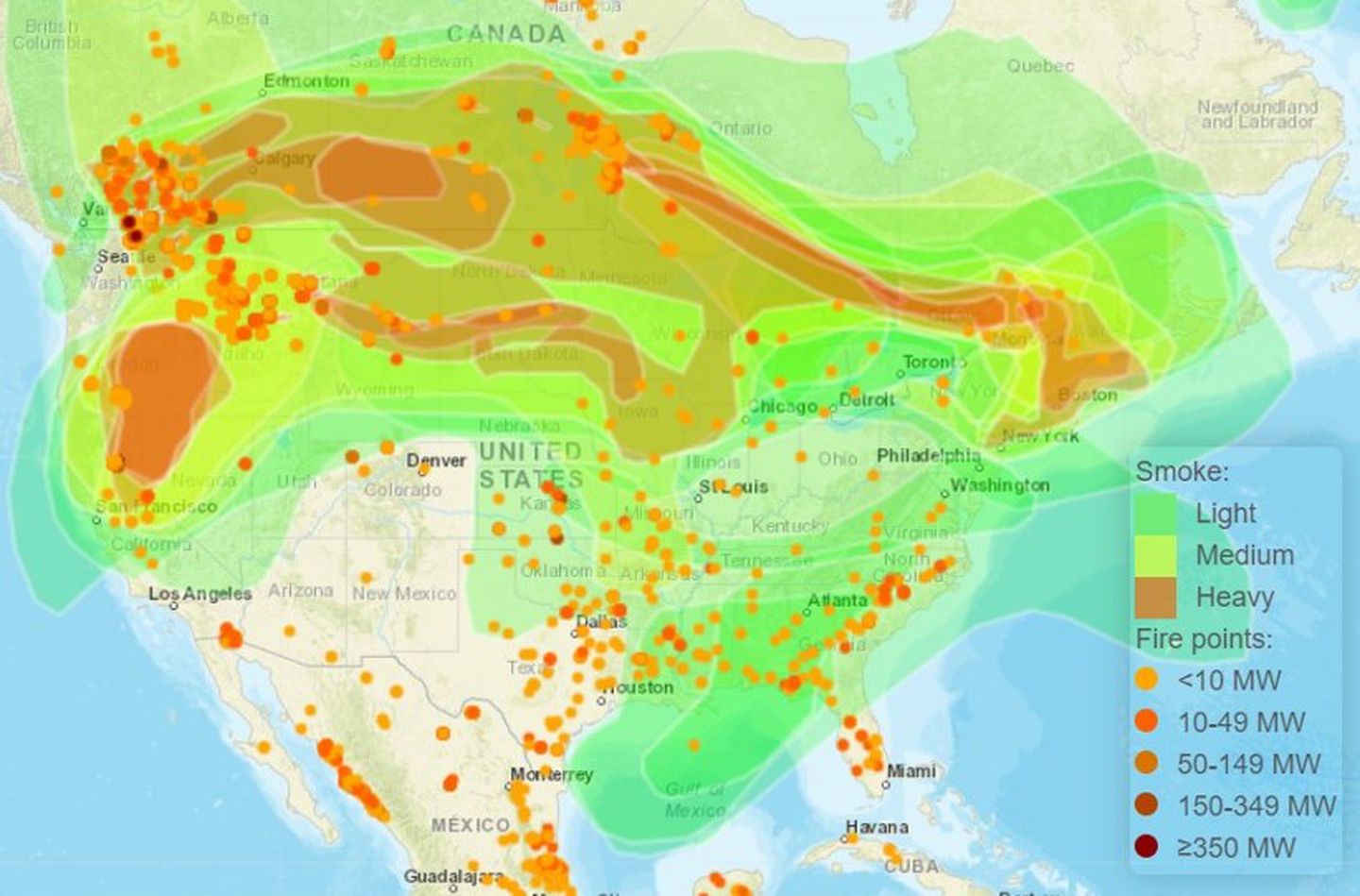On Monday, the air quality in Boston and the greater New England area was so bad that it was only rivaled by the areas in Northern California and Oregon currently on fire. An interactive map from the National Oceanic and Atmospheric Administration showed how smoke from the wildfires out west were being carried across the continental US by winds and the jet stream. In response to the blanket of smoke engulfing Massachusetts' skies, the state Department of Environmental Protection issued an air quality alert.
Around Boston, people reported not only seeing a film of smoke in the skies but also smelling the scent of wood burning. Firefighters across the state fielded calls from concerned residents who worried that a fire was burning nearby. This is the second time in the last two weeks that smoke from the western forest fires has been carried to New England-but the smoke was markedly thicker and more pungent this time around.
With scientists predicting that our climate will continue to get hotter and drier, exacerbating normal patterns of forest fires, The Brink reached out to Boston University environmental earth scientist Mark Friedl for help understanding what these changes mean for our planet and for human health. Friedl, an expert in using NASA satellite imaging to interpret large-scale environmental trends, recently published new research findings indicating that forest fires in the Earth's northernmost forests could accelerate climate change-potentially locking the planet in a feedback loop where drier climate causes more fires and those fires, in turn, speed up global warming. "Fires are intensifying, and when forests burn, carbon is released into the atmosphere," Friedl said about those findings.
Friedl, a BU College of Arts & Sciences professor of earth & environment and interim director of BU's Center for Remote Sensing, answers four questions posed by The Brink about the effects of western wildfire smoke over New England and the US.







